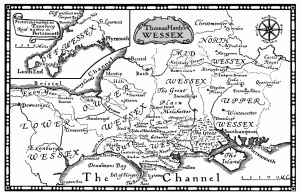Thomas Hardy and the Defence of Rural Life
24 March 2015
“Dick the carter, Bob the shepherd, and Sam the ploughman, are, it is true, alike in the narrowness of their means and their general open-air life. But they cannot be rolled together into any such Hodge as is dreamt of by the distanced inquirer.” Thomas Hardy, The Dorsetshire Labourer, 1883
Thomas Hardy had a strange life. Born in rural Victorian Dorset, he died at the grand old age of 87 as a famous literary man in a world of jazz, flappers and Modernism. His father was a builder, his mother a servant, and he was raised in a humble cottage. Yet Hardy was to become one of the great literary figures of his age.
If it was unusual enough for a man like him to join the literary intelligentsia in London, by his later years an even rarer thing occurred − they came to him. In his Dorset house Maxgate, Hardy would eventually entertain the crème de la crème of turn of the century society, from T.E. Lawrence (of Arabia!) to George Bernard Shaw, Virginia Woolf and J.M. Barrie.
Map of Hardy’s Wessex
But all of this was unthinkable in 1873, when the young Hardy, then an architect, returned to his family home for a summer of writing. The result was Far from the Madding Crowd, serialized in the Cornhill magazine. It was commissioned based on the “rural charm” of Hardy’s earlier novels, and the writer was well aware of it. He had struggled to be published throughout his twenties, and he must have seen this offer as his big break. If the middle class readers wanted pastoral romance, then pastoral romance he would give them.
But Hardy was treading a fine line. He’d had an unusually advanced education for someone of his background, and so he fell into an ambiguous social space. This experience of transitioning status would become a perennial theme in his work, and as he sat down to write Far from the Madding Crowd, his task was to render his rural community for the enjoyment of a higher class readership. How could he give his readers what they wanted, without betraying his own people by stereotyping them?
In a letter to his illustrator, Hardy asked that his “rustics, although quaint, may be made to appear intelligent, and not boorish at all.” Later in his life, he would express the same sentiment much more caustically, in his essay The Dorsetshire Labourer. Here, he passionately defended the individuality and dignity of rural folk, a stance already taking shape in Far from the Madding Crowd. Though the novel is indeed bursting with charm and humour, he was careful to make his supporting cast feel real too, with their own desires and concerns.
So far, it has been an absolute pleasure for a confessed Hardy geek like myself to attend rehearsals of Jessica Swale’s production. One of my favourite aspects of the adaptation is how funny, clever, and sympathetic the ensemble are, and the superb cast are really doing them justice! As we keep working to understand the Victorian Dorset of Far from the Madding Crowd, I’ll be on hand to answer questions as best I can. So if you’ve ever wondered about God-Forgive-Me jugs, bushels of Biffins or Farmer Boldwood’s Leicesters, watch this space…
Danielle Pearson
Researcher, Far From The Madding Crowd

